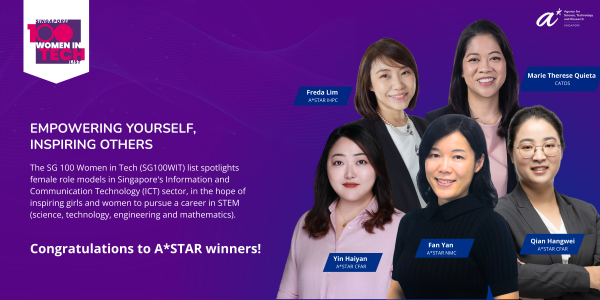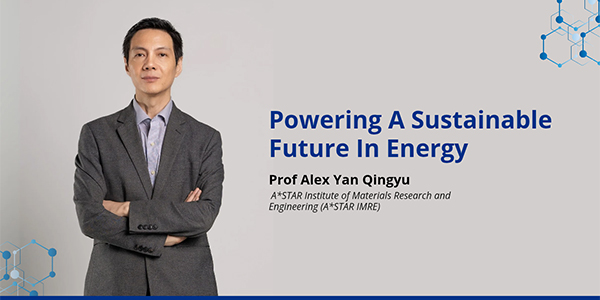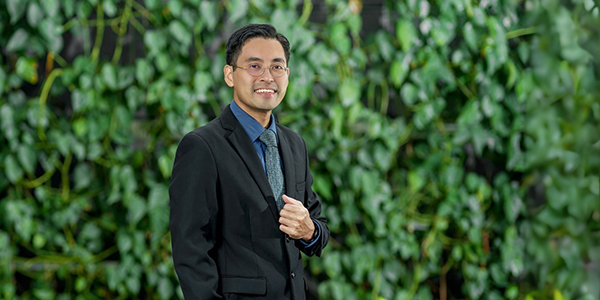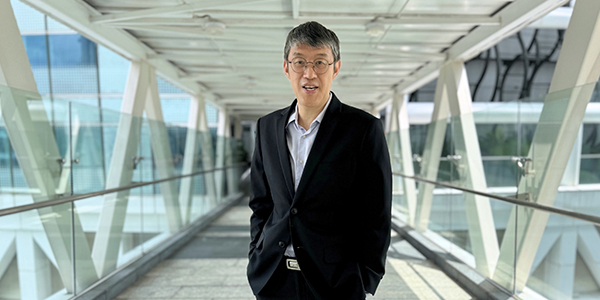FACES OF A*STAR
Light Years Ahead
Dr Yang Le, Principal Scientist at A*STAR's Institute of Materials Research and Engineering, is recognised in the 2023 edition of MIT Technology Review's "Innovators Under 35" Asia Pacific list
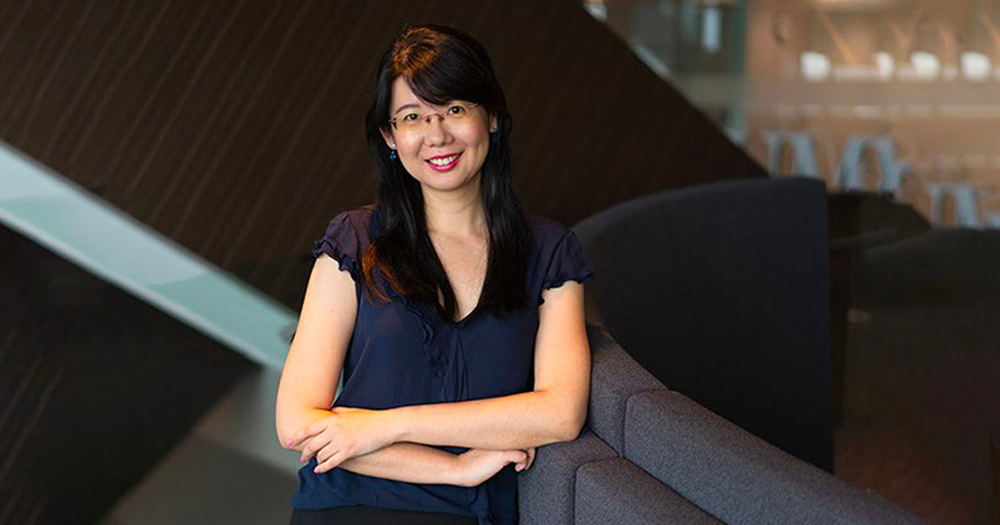
How does your work in organic electronics impact diverse industries like energy, healthcare and display?
At A*STAR's Institute of Materials and Engineering (IMRE), I head the Printed Organic Flexible Electronics & Sensors group, or PROFESS. We work on two key areas: optoelectronics, and wearables and sensors.
Optoelectronics is an exciting field, where I look into the use of organic semiconducting materials instead of traditional inorganic or silicon-based semiconductors, for applications involving the interplay or interaction of light and electrical energy.
Organic semiconductors enjoy many advantages such as being flexible, stretchable and printable. They also have unique photophysical properties that we can leverage to make energy-efficient optoelectronic devices. Our work focuses on luminescence, such as organic light-emitting diodes (OLEDs), which are used as display pixels in phones, wearables and TV screens. We also work on efficient photon upconversion, converting lower-energy colours of light into that with higher energy.
Can OLEDs and upconversion devices be printed at large scale and applied to bigger devices?
Definitely. Our OLEDs have achieved very high efficiency by a solution-processing fabrication route, paving the way for printable and flexible devices. We have also printed our photon upconversion system on a large-area ultra-flexible substrate, demonstrating a bright, scalable platform strategy.
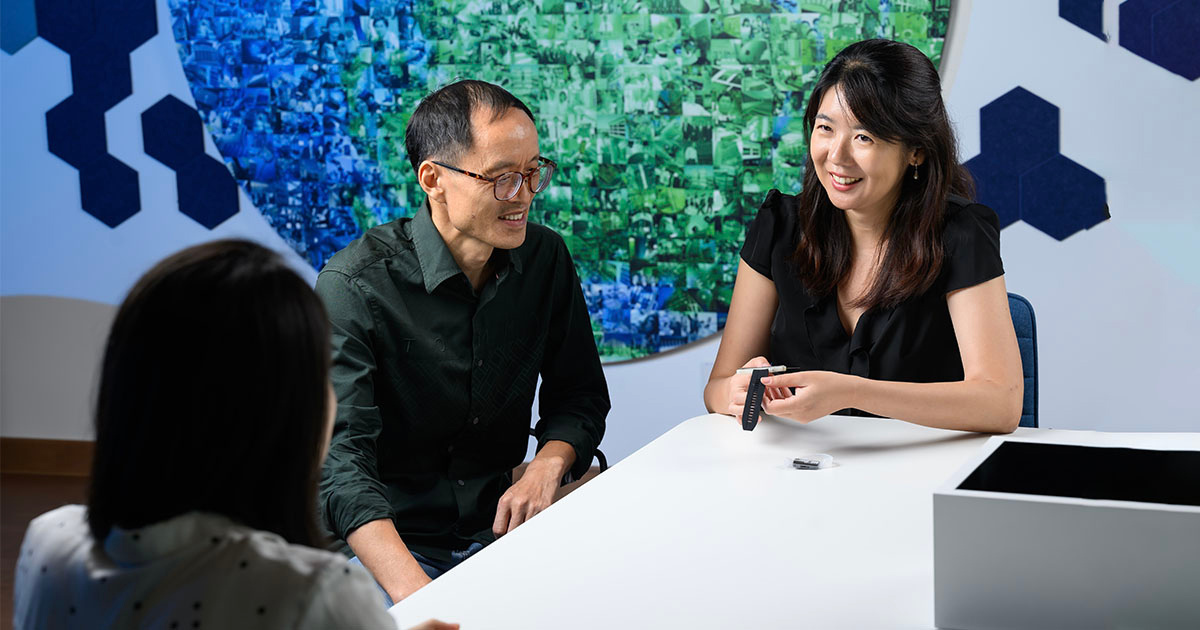
What about wearables and sensors?
We make flexible electrochemical sensors that can be used in health monitoring devices.
In recent years, the general population has become more health conscious. Devices like fitness and activity trackers, are increasingly popular. These devices track mainly physical parameters such as the number of steps you take, your heart rate, the quality of your sleep, and so on. But when it comes to monitoring chemical parameters, we still depend on invasive and painful blood tests, including finger pricks.
Our team has been working on to bridge this gap, with our Wearable In-situ Sweat-sensorics for Health prototype, or WISH.
WISH is a wearable multiplexed sensor that can monitor several chemical markers non-invasively, continuously and in real-time, from our skin and sweat.
This serves as a complementary and supplementary dimension to existing wearables, and paints a more holistic picture of health for consumers.
WISH depends on sweat production. It analyses the sweat you produce for markers like glucose, uric acid, creatinine, and lactate, and sends the output wirelessly to a phone app, allowing users to track the results instantly.
"As such, WISH is suitable as a lifestyle tool to monitor physical activity, for example when you carry out your daily exercise routine. It is also suitable for monitoring potential issues such as dehydration and fatigue, which is useful in professions like construction or professional sports."
One of the key challenges is finding the correlation between the WISH sensor's readings and conventional blood test readings to accurately reflect a person's health.
We are refining our prototype and will continue to conduct on-body trials with larger groups of volunteers. Eventually, we hope to translate the technology into a commercialised product.
WISH is potentially disruptive in the healthcare space. We can't wait for it to make a difference to the lives of consumers.

In 2023, you also won the 2023 L'Oréal award for women who have shown outstanding contribution in science. What do you think are some of the challenges for women in science, technology, engineering and math (STEM)?
Gender isn't important when it comes to a career in science. I see myself simply as a scientist, not a "female" scientist. We can strive to let our work speak for itself and take pride in what we have accomplished.
Science is not a realm reserved for a few, but a world open to all who dare to explore. As women, we bring unique perspectives and innovative ideas to the table. Ultimately, we should be recognised for our work and achievements, rather than for our gender. The advancement of science should be inclusive and based on a diverse pool of passionate researchers, regardless of gender and background.
Was this article helpful?
A*STAR celebrates International Women's Day

From groundbreaking discoveries to cutting-edge research, our researchers are empowering the next generation of female science, technology, engineering and mathematics (STEM) leaders.
Get inspired by our #WomeninSTEM

